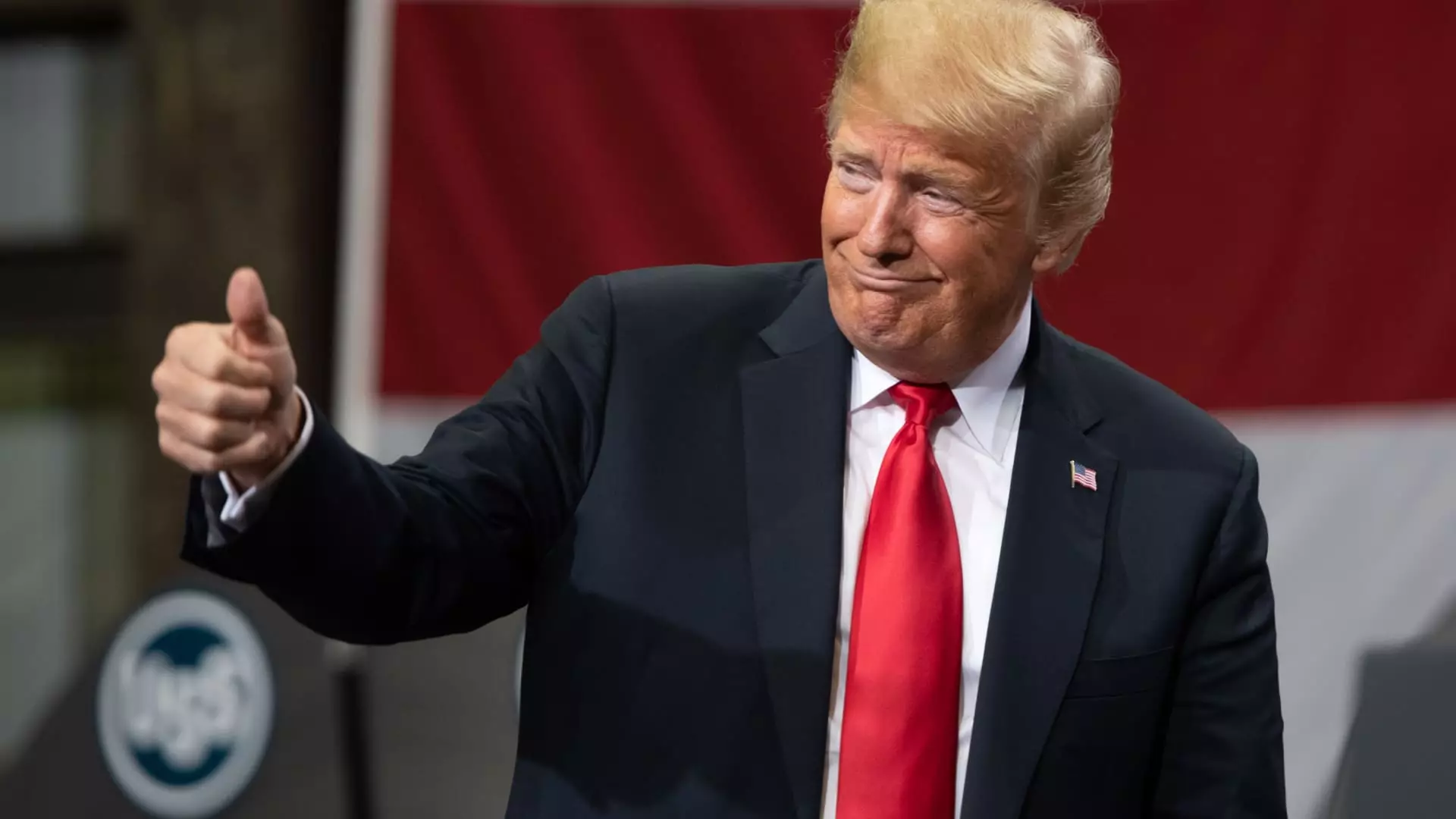Donald Trump’s recent foray into market advice provides an intriguing lens through which to view the unpredictability of stock investments. His declaration on Truth Social urging followers to “buy stocks now” caused a frenzy as markets responded positively to the news of tariffs being rolled back. This may seem like a sweet promise of profit, but it raises the pertinent question: is it wise to heed the recommendations of a man whose influence has oscillated between market booms and busts? The success of this financial guidance is contingent on volatility, which, as history shows, can just as quickly evaporate as it appeared.
One may be tempted to characterize Trump’s tweets as a mere coincidence in timing, yet what if they aren’t? With his substantial influence in the financial sector, there is undeniable potential for power play where investors might feel as though they are part of a manipulated game. For every investor that benefited from his post, one could argue there are countless others left hanging in uncertainty. When the winds of market sentiment shift with the whims of a single individual, it undermines the fundamental principles of a healthy economic system.
A Quick Look at Market Reactions
The market’s reaction was nothing short of spectacular. Various key stocks surged following Trump’s announcement, with notable gains in SPDR S&P 500 ETF Trust reaching an 11% increase at one point. Tesla’s stock also experienced substantial growth, highlighting the undeniable relationship between public sentiment and market behavior. Yet these numbers, while appealing, beg the question: Should investors be relying on social media posts to guide their financial decisions?
To many, trading based on impulsive advice dilutes the very essence of investing—grounded analysis and market fundamentals. The “psychics” on forums like Reddit’s WallStreetBets who claimed victory by following Trump’s suggestion reveal a troubling mindset. Investing fueled by speculation rather than thoughtful strategy can often lead to disastrous financial consequences when market dynamics alter unexpectedly.
The Shadow of Potential Manipulation
The blatant intertwining of personal interests and stock market dynamics raises ethical concerns about potential market manipulation. Critics are whispering allegations of insider trading, suggesting that the timing of Trump’s declarations may serve interests beyond the average investor. The intricate web of influence becomes even murkier when one considers how Trump’s position could equate to a backstage pass, allowing him to sway stock prices to his advantage while amateurs are left picking up the pieces.
Furthermore, the fact that Trump’s financial posture overlaps with his role as a public figure introduces an inherent risk. When the person providing market advice has a financial stake in certain companies, the impartiality of the guidance becomes suspect at best. It amplifies the notion that his proclamations could be self-serving in nature, undermining public trust in the market.
The Risks of Following the Crowd
Investing based on trending conversations—whether from social media or perceived group consensus—may feel exhilarating, but it can lead to a heady mix of anxiety and despair when the tides turn. Many who flocked to purchase stocks based on Trump’s directives might have jumped on the hype train without sufficient due diligence, only to face sleepless nights riding the roller coaster of financial uncertainty.
Market trends often dictate the psychology of investors, and Trump’s proclamations tend to attract a loyal following. Not only does this call into question the legitimacy of his advice, but it also highlights the dangers of public figures serving as self-styled economic brokers. If one’s investment strategy hinges on this sort of sensationalism, they risk being left behind when the ethos changes, pushing investors into panic mode.
Empowering Individual Responsibility in Investing
As the allure of social media and sensationalism threatens to overshadow sound investment practices, it is vital for individuals to take ownership of their financial futures. Cautious and informed decision-making should remain the cornerstone of investing. Instead of frantically reacting to fleeting trends, it’s crucial to evaluate financial decisions based on a comprehensive understanding of the market rather than the whims of charismatic leaders.
While Trump’s impulsive advice might momentarily influence stock prices, sustainable investment strategies should focus on long-term objectives and realistic growth paths, not the whims of a social media post. Ultimately, true economic empowerment comes from being informed and discerning in our choice of investment—not passively following the market’s latest sermon.

